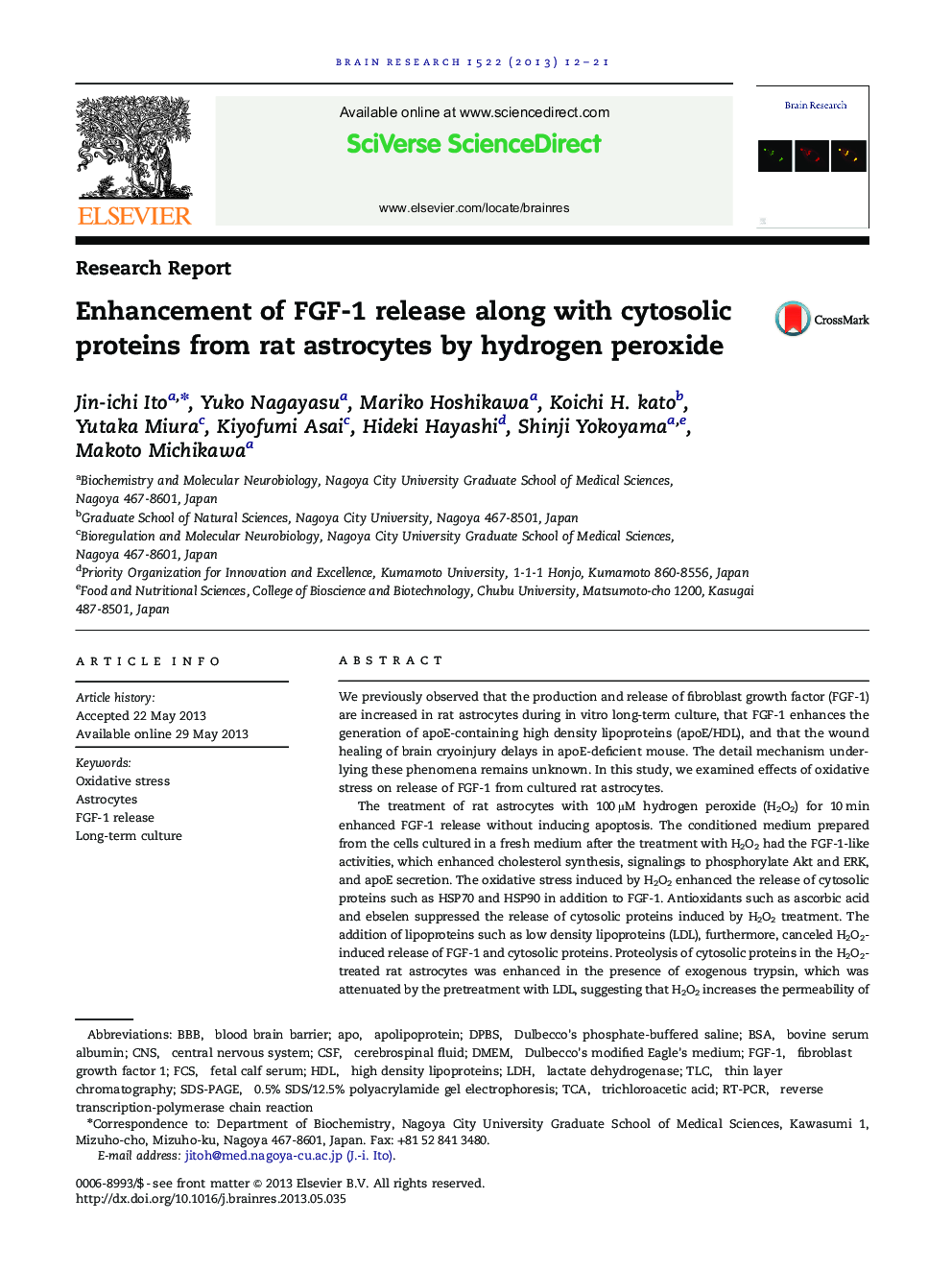| Article ID | Journal | Published Year | Pages | File Type |
|---|---|---|---|---|
| 6263796 | Brain Research | 2013 | 10 Pages |
Abstract
The treatment of rat astrocytes with 100 µM hydrogen peroxide (H2O2) for 10 min enhanced FGF-1 release without inducing apoptosis. The conditioned medium prepared from the cells cultured in a fresh medium after the treatment with H2O2 had the FGF-1-like activities, which enhanced cholesterol synthesis, signalings to phosphorylate Akt and ERK, and apoE secretion. The oxidative stress induced by H2O2 enhanced the release of cytosolic proteins such as HSP70 and HSP90 in addition to FGF-1. Antioxidants such as ascorbic acid and ebselen suppressed the release of cytosolic proteins induced by H2O2 treatment. The addition of lipoproteins such as low density lipoproteins (LDL), furthermore, canceled H2O2-induced release of FGF-1 and cytosolic proteins. Proteolysis of cytosolic proteins in the H2O2-treated rat astrocytes was enhanced in the presence of exogenous trypsin, which was attenuated by the pretreatment with LDL, suggesting that H2O2 increases the permeability of the membrane of cells, which was prevented by the addition of lipoproteins. These findings suggest that oxidative stress is one of the candidates which triggers FGF-1 release from astrocytes in the brain, and that the lipid homeostasis in the cell membrane may regulate H2O2-induced release of FGF-1.
Keywords
TLCDMEMFCSRT-PCRHDLFGF-1DPBSTCABSADulbecco's modified Eagle's mediumAstrocytesbovine serum albuminapoapolipoproteintrichloroacetic acidSDS-PAGEOxidative stressCNSblood brain barrierBBBfetal calf serumcentral nervous systemFibroblast growth factor 1Long-term cultureDulbecco's phosphate-buffered salinelactate dehydrogenaseLDHhigh density lipoproteinsCerebrospinal fluidCSFreverse transcription-polymerase chain reactionTLC, Thin layer chromatography
Related Topics
Life Sciences
Neuroscience
Neuroscience (General)
Authors
Jin-ichi Ito, Yuko Nagayasu, Mariko Hoshikawa, Koichi H. kato, Yutaka Miura, Kiyofumi Asai, Hideki Hayashi, Shinji Yokoyama, Makoto Michikawa,
